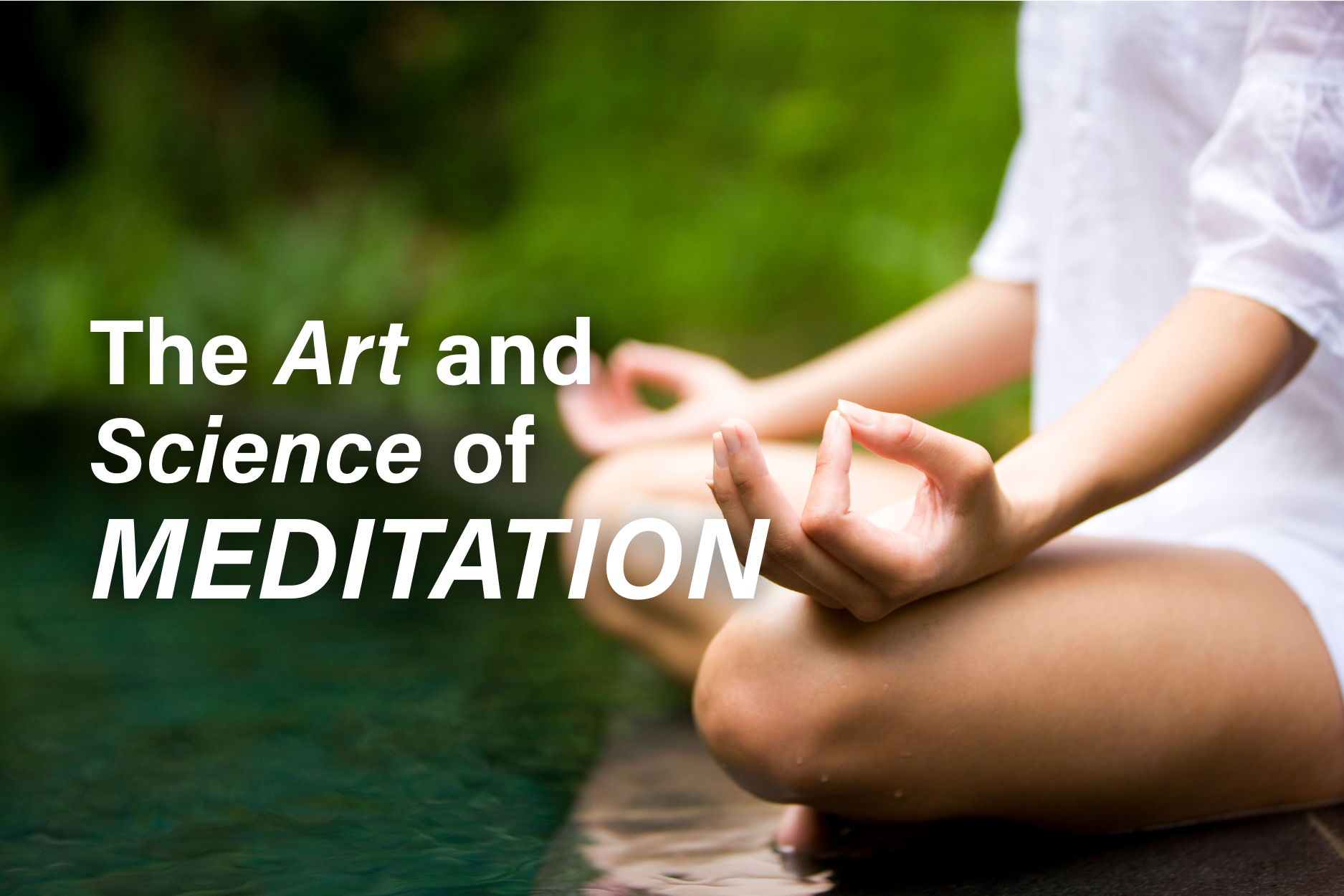
The Art and Science of Meditation: A Complete Guide to Calm, Clarity, and Well-Being

Why Meditation Matters Now More Than Ever
Modern life is fast-paced, demanding, and often overwhelming. Whether you are a student facing endless deadlines, a professional juggling work and personal responsibilities, or simply someone scrolling endlessly through your phone late at night, stress has likely become a familiar companion. According to research by the Australian Psychological Society, stress levels in Australia have steadily increased over the last decade, with workplace pressures, financial concerns, and digital overload listed as leading causes. Globally, more than 970 million people struggle with stress, anxiety, or depression, showing that mental well-being is one of the biggest challenges of our time.
Enter meditation, a practice that has been around for over 5,000 years yet has never been more relevant. While once considered mystical or limited to monks and spiritual seekers, meditation is now one of the most science-backed wellness tools available. It has been studied extensively in neuroscience, psychology, and medicine, showing clear benefits for the brain, body, and emotional health.
In this comprehensive guide, we will explore the origins, benefits, types, and practical steps to bring meditation into your life. We will look at what science says, bust common myths, and provide actionable techniques that even the busiest person can follow. By the end, you will not only understand meditation but also have the confidence to begin your own practice.
What is Meditation?

At its core, meditation is the practice of training the mind to focus, observe, and cultivate awareness. While definitions vary across traditions, the unifying idea is that meditation allows us to step back from racing thoughts and find clarity in the present moment.
The earliest records of meditation date back to India around 1500 BCE, associated with Hindu traditions, later influencing Buddhism, Jainism, and Taoism. Over centuries, meditation spread across cultures and religions, including Judaism, Christianity, and Islam. What began as spiritual devotion is now recognised worldwide as a secular, therapeutic practice.
Modern science defines meditation as a technique where you intentionally regulate your attention, often focusing on the breath, bodily sensations, or a mantra. It is less about “emptying the mind” and more about becoming aware of what is happening inside and around you without judgment.
Why Meditation Matters in 2025

We live in an era of constant stimulation. Notifications, emails, work deadlines, social comparisons, and digital media bombard our senses daily. While technology offers convenience, it also increases distraction and burnout. Stress-related conditions such as anxiety, insomnia, and high blood pressure are rising worldwide.
In Australia alone, workplace stress is reported to cost billions annually in lost productivity and health-related expenses. Globally, the World Health Organization (WHO) lists stress as one of the greatest health risks of the 21st century.
Meditation has emerged as an antidote to this high-speed lifestyle. Unlike quick fixes, meditation addresses the root cause of stress: the overactive mind. Just 10 minutes a day can help calm the nervous system, lower cortisol levels, and bring focus back to what matters most.
10 Science-Backed Benefits of Meditation

1. Meditation Helps Lower Stress and Anxiety
Dozens of studies confirm that meditation reduces stress by lowering cortisol, the hormone linked to anxiety and fatigue.[1] An eight-week study at Harvard University found that mindfulness meditation significantly decreased symptoms of generalised anxiety disorder and improved coping mechanisms.
2. Meditation Improves Mood and Reduces Depression
A meta-analysis of 18 clinical trials showed that meditation therapies reduced depressive symptoms. Regular practice increases serotonin and dopamine activity in the brain, leading to a more positive outlook on life.[2]
3. Meditation Boosts Focus and Productivity
“Focused-attention meditation” works like a workout for your brain. One study published in Psychological Science found that students who practised short sessions of meditation improved concentration and test performance compared to non-meditators.[3]
4. Meditation Improves Sleep Quality
Insomnia affects millions worldwide. Meditation activates the parasympathetic nervous system, helping the body relax and prepare for deep sleep.[4] Apps like Calm and Insight Timer now offer guided sleep meditations that help users fall asleep faster.
5. Meditation Enhances Emotional Regulation
By strengthening the prefrontal cortex (the brain region linked to decision-making), meditation helps people manage anger, fear, and impulsive reactions. Instead of reacting aggressively, meditators are more likely to respond calmly.[5]
6. Meditation Strengthens Memory and Brain Plasticity
Meditation has been shown to increase grey matter density in the hippocampus, the part of the brain responsible for memory and learning. It has even been studied as a supportive tool for patients with dementia.[6]
7. Meditation Supports Heart and Immune Health
Regular practice lowers blood pressure, improves circulation, and boosts immune function. This makes it a valuable tool for preventing lifestyle-related diseases.[7]
8. Meditation Improves Pain Management
Studies show that meditation changes the way the brain perceives pain. While it may not remove pain, it reduces the emotional distress associated with it, offering relief for chronic pain patients.[8]
9. Meditation Encourages Resilience
By creating mental space and clarity, meditation helps people handle setbacks, grief, and uncertainty with more grace. This resilience is crucial in today’s unpredictable world.[9]
10. Meditation Improves Overall Well-Being
Perhaps the most important benefit: meditation helps you feel more alive and present. Instead of worrying about the past or future, you learn to experience the richness of the present moment.[10]
Types of Meditation
There is no one-size-fits-all approach. Below are the most popular forms:
- Mindfulness Meditation – Focuses on observing thoughts and sensations without judgment.
- Loving-Kindness Meditation (Metta) – Cultivates compassion for self and others.
- Transcendental Meditation (TM) – Uses mantras for deep relaxation and focus.
- Zen Meditation (Zazen) – Rooted in Buddhism, involves seated awareness of breath and posture
- Body Scan and Yoga Nidra – Guided awareness of body parts to release tension.
- Breathwork and Pranayama – Controlled breathing techniques from yogic traditions.
Each form offers unique benefits, and experimenting with different styles helps you discover what works best for your lifestyle.
Starting meditation can feel intimidating, but it is easier than most people think.Even 5 minutes daily can create long-term benefits when practised consistently.

Integrating Meditation Into Daily Life
-
Morning ritual: Begin the day with 10 minutes of stillness before checking your phone.
-
At work: Take micro-breaks, close your eyes, and focus on breathing for 2–3 minutes.
-
During commute: Instead of scrolling, practise mindful observation of your surroundings.
- Before sleep: Wind down with a guided meditation to signal rest.
Meditation for Different Groups

Common Myths About Meditation
-
“You need to empty your mind.” False. Meditation is about observing, not erasing thoughts.
-
“It takes hours to work.” Even a few minutes can help.
-
“It is only religious.” Meditation can be secular and is backed by science.
Meditation Tools and Resources
Apps like Headspace, Insight Timer, and Calm offer guided practices for beginners. Group meditation sessions at yoga studios or workplaces are also effective. For a deeper dive, books such as The Miracle of Mindfulness by Thich Nhat Hanh provide timeless wisdom.
How Meditation Connects with Nutrition and Lifestyle

Meditation works best when paired with healthy habits. Nutrition plays a role in brain chemistry and emotional balance. Superfoods, nootropics, and adaptogens such as L-theanine, magnesium, and Schisandra berry complement meditation by reducing stress and enhancing focus.
For instance, the CALM Starter Nootropic Stack For Calm and Clarity blends plant-based nootropics with soothing adaptogens to complement a meditative routine. While meditation quiets the mind, proper nutrition provides the fuel for clarity and resilience.
Getting Started: 30-Day Meditation Challenge
-
Week 1: Start with 5 minutes daily.
-
Week 2: Increase to 10 minutes. Explore different techniques.
-
Week 3: Add one mindful activity (eating, walking, or journaling).
-
Week 4: Aim for 15 minutes daily and reflect on your progress.
By the end of 30 days, meditation will begin to feel less like a chore and more like a natural part of your lifestyle.
Conclusion
Meditation is more than a wellness trend. It is an ancient practice with modern scientific validation. Whether you seek stress relief, better sleep, sharper focus, or emotional balance, meditation offers a simple yet powerful solution. In a world where distraction is constant, meditation is the gateway back to peace, clarity, and presence.
The best part? You do not need fancy tools, long hours, or perfect silence. All you need is a few minutes each day and the willingness to start.
So take a deep breath, close your eyes, and begin. The present moment is waiting.
TL;DR (Too Long, Didn’t Read)
Meditation is one of the oldest practices for cultivating inner peace, dating back over 5,000 years. Today, it is supported by extensive scientific research showing its benefits for mental, physical, and emotional well-being. Unlike other habits that require enormous effort, meditation teaches us to let go, relax, and be fully present in the moment.
Origins and Definition:
Meditation began in ancient India and spread through Buddhism, Hinduism, and other traditions before becoming a global wellness tool. It is not about emptying the mind but about observing thoughts and sensations without judgment.
Why it Matters Today:
Stress and anxiety are at record highs worldwide, fueled by fast-paced lifestyles, digital overload, and workplace pressures. Meditation is proven to reduce cortisol, calm the nervous system, and restore focus.
Key Benefits:
- Reduces stress and anxiety
- Improves mood and reduces depression
- Boosts focus and productivity
- Improves sleep quality
- Enhances emotional regulation
- Strengthens memory and brain plasticity
- Supports heart and immune health
- Helps manage pain
- Builds resilience
- Increases overall well-being
Final Takeaway:
Meditation is not about perfection but about practice. It is about meeting yourself in the present moment and allowing stillness to replace chaos. In just a few minutes each day, meditation can transform your stress levels, sharpen your focus, and nurture your well-being.
Start today. The gift of presence is the best investment in your health and happiness.
REFERENCES:
[1] Meditation interventions efficiently reduce cortisol levels of at-risk samples
[2] Mindfulness-based interventions: an overall review
[3] Mindfulness Enhances Cognitive Functioning: A Meta-Analysis of 111 Randomized Controlled Trials
[4] The effect of mindfulness meditation on sleep quality
[6] Does Meditation Enhance Cognition and Brain Plasticity?
[8] Mindfulness meditation–based pain relief: a mechanistic account
[9] Mindfulness Meditation for Increasing Resilience in College Students
[10] Effects of mindfulness meditation on mindfulness, mental well-being, and perceived stress







